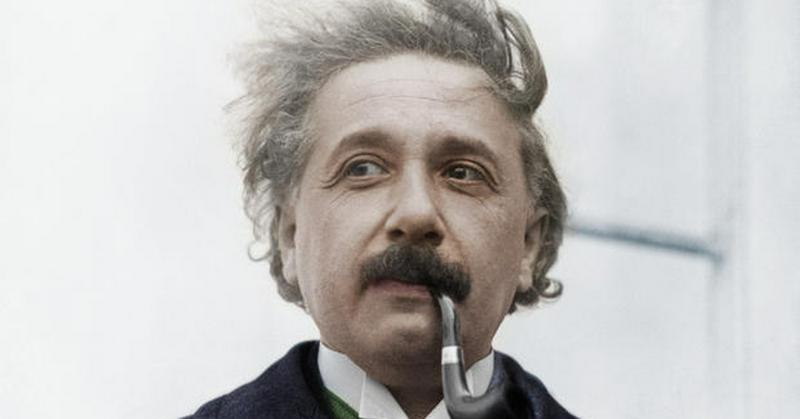5 Things You Probably Didn't Know About Albert Einstein
By | January 24, 2022

He Actually Did Do Well In School
Despite the common myth that genius physicist Albert Einstein flunked math, he was a pretty stellar student who apparently just didn't test well. When he took his college entrance exams at age 16, he even did great on his math test but scored fairly low in other subjects, resulting in his attendance of a less-demanding post-secondary program in Switzerland (which also allowed him to avoid Germany's compulsive military enlistment) and possibly the rumor that he was a scholastic delinquent.
But It Didn't Help Much
After receiving his degree from Zurich Polytechnic, Einstein spent two long years trying and failing to obtain a teaching position. He received little help from his professors, but on the whole, it seemed he was simply not cut out for academia. Eventually, he gave up and took a job at a patent office, which turned out to be a blessing in disguise because this remedial job gave him enough money to live and enough head space to dedicate his mind to his true passion. His greatest hits suddenly came tumbling out of him, including the 1905 publication of "E = mc2," and the rest was history.

He Married His Cousin
Einstein's first marriage was to a woman named Mileva Maric from 1903 to 1919, who actually received the money from the Nobel Prize he won two years later per their divorce settlement. They had two sons, the younger of whom spent his life in and out of institutions after being diagnosed with schizophrenia at age 20, and possibly a daughter. Little is known about her other than the possible name of Lieserl, as Einstein and Maric referred to her in their letters, and hints in those letters that the girl, who was born before the couple's marriage, either died as an infant or was placed for adoption. During his marriage to Maric, Einstein fell in love with his maternal first cousin, Elsa Lowenthal, who was also somehow his second cousin on his father's side. Their marriage lasted from the year he divorced Maric until Lowenthal's death in 1936.
He Was An Anti-Racism Activist
Obviously, being a Jewish man from Germany who was alive to witness Hitler's reign (if not, thankfully, up close and personally, having immigrated to the U.S. the year before the Fuhrer took office), Einstein was outspoken about prejudice and racial persecution. He became fast friends with activist and sociologist W.E.B. Du Bois, joined the N.A.A.C.P. soon after its formation, and practiced what he preached, such as opening his home to a black singer named Marian Anderson after she was invited to perform at Princeton but was denied hotel accommodations. Anderson made it a point to visit him any time she was in the area for the rest of his life.

His Brain Had A Weird Journey
Einstein died on April 17, 1955 from complications of an abdominal aneurysm. His body was scheduled for cremation per his wishes, but during his autopsy, pathologist Thomas Stoltz Harvey removed Einstein's brain without consulting his family or the hospital and took it to a lab at the University of Pennsylvania for a series of experiments. Harvey's findings were somewhat inconclusive, but photographic evidence suggests that Einstein's parietal lobes (an area of the brain often associated with math and visual cognition) was 15% larger than the average Joe's, and the most unusual parts of his brain were those correlated with visualization, which may explain why Einstein insisted he rarely thought in words. Contrary to what many believe about the relationship between brain size and intellect, however, Einstein's brain was reported to be on the smaller side of average.
Harvey never returned the brain to the family. In fact, the entire brain has never been recovered. After Harvey's death in 1978, two mason jars containing parts of Einstein's brain in alcohol were discovered among his belongings, which his heirs donated to the National Museum of Health and Medicine.

